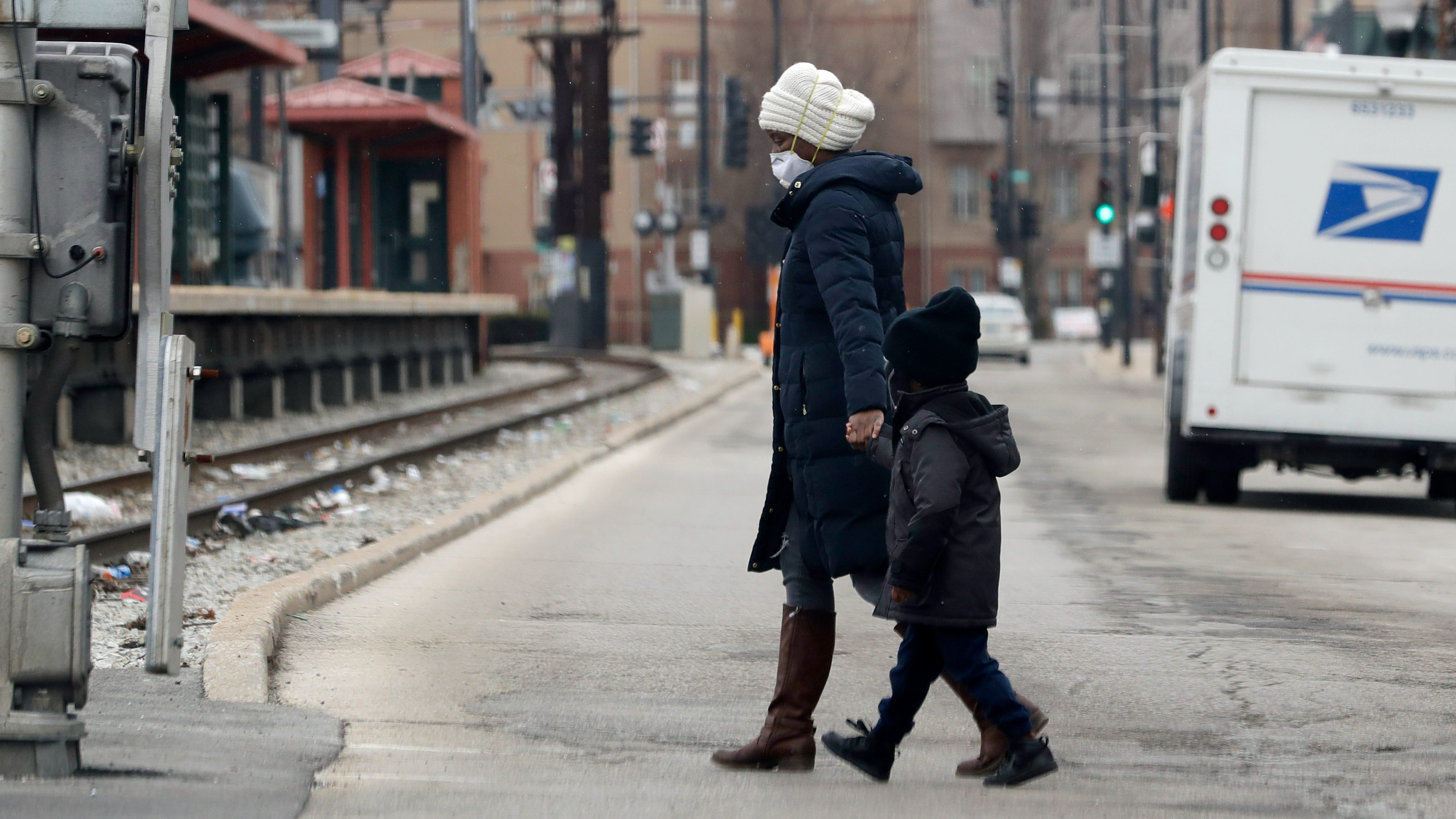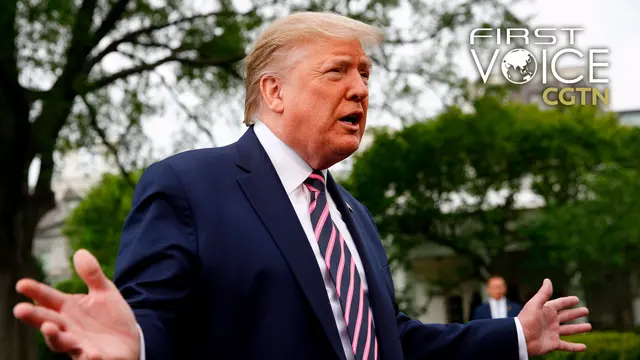
U.S. President Donald Trump speaks to members of the media on the South Lawn of the White House in Washington DC, May 5, 2020. /AP
Editor's note: CGTN's First Voice provides instant commentary on breaking stories. The daily column clarifies emerging issues and better defines the news agenda, offering a Chinese perspective on the latest global events.
On May 4, former U.S. senator Jeff Sessions called for the setting up a group for an investigation into the so-called "Chinese covering-up" of the COVID-19. He explained: "We have used similar committees in the past at pivotal moments in our nation's history, including after the attack on Pearl Harbor…the seriousness of this preventable global pandemic calls for an equally serious response."
Two days later, U.S. President Donald Trump reiterated Sessions' comment. He seemed to agree with his former attorney general about the pandemic: "It has been worse for the United States than Pearl Harbor and 9/11."
To parallel the COVID-19 situation with these events is dangerous, as these are two major turning points in U.S. history that have led to destructive wars between the United States and its adversaries.
Firstly, one must be clear that the pandemic is completely different from Pearl Harbor and 9/11. Pearl Harbor was the turning point of World War Two to drag the U.S. into the war in 1941, and 9/11 was a terrorist act to drag U.S. into wars in Afghanistan and Iraq in the first decade of the 21st century.
Both events are attacks against the U.S., and the country took them as war declarations, but COVID-19 has nothing to do with war, nor is it related with human intentions. It was not created in a lab, as many scientists have claimed that the virus originated from nature.
If the U.S. want to start another war by responding to the pandemic like after the Pearl Harbor and 9/11, just by this metaphorical language, it would be very dangerous.
Not only that the claims made by Sessions and Trump are inappropriate, the thought of dragging U.S. into another war is precipitous and without careful evaluation, and if there was a war against their presupposition enemy, be it China or other countries, it will be a war without a just reason.
Secondly, the pandemic situation in the U.S. would not have been so grave if the Trump administration had taken necessary precautions in time. However, after China reported the first case in December 2019 and later warned the rest of the world through the World Health Organization, not many countries in the world quickly took strict measures to prevent the virus from spreading.
China saved months' time for other countries in the world to take quarantine measures, but the time was squandered. Instead of using this time to figure out how to lessen the spreading speed of the virus, U.S. officials, from its president to its cabinet and some congress people, blamed China for the rapid worsening situation in America, and neglected their own inability to deal with the crisis.
Moreover, POLITICO reported that the U.S. National Republican Senatorial Committee distributed a "detailed, 57-page memo" advising the Republicans to blame China for the COVID-19 as a major campaigning strategy in the upcoming November presidential elections.
By any standards, this is no responsible way of dealing with a global crisis, let alone they have exaggerated the seriousness of the pandemic. It is true that by now the U.S. has the largest number of confirmed cases and deaths in the world, but if the U.S. officials had cooperated with other countries' efforts to combat the virus and avoided finger-pointing and blame game, the situation would have gone better.
By projecting COVID-19 as the new Pearl Harbor, U.S. officials are bluffing the Americans to deflect the attention from the dampened U.S. economy and ignite nationalist anger which would benefit the populists in an election year. Threatening other countries by mentioning historical events that have killed millions of innocent people in the aftermaths is disrespecting human life.

Pedestrians wear mask as they cross the street in Chicago, U.S., April 22, 2020. /AP
As Nathaniel L. Moir, a postdoctoral fellow at Harvard University's Kennedy School of Government, pointed out in the article "This Virus Is Tough, but History Provides Perspective: The 1968 Pandemic and the Vietnam War," in 1968, "the H3N2 pandemic killed more individuals in the U.S. than the combined total number of American fatalities during both the Vietnam and Korean Wars," which history has shown that pandemics take far more lives than that of war.
To end a pandemic, one does not need to start a new war which may lead to decades of turmoil, killing thousands of people and causing great damage to the world economy.
Thirdly, if these claims by Trump and Sessions mean a prelude to wage a major "revenge" to any country in particular, the world needs to prepare for it.
Tomorrow is the 75th anniversary of the Victory in Europe Day (VE Day) of the World War Two for one to celebrate the past when the Allied Powers from the world fought together for a common enemy. One must recall the history and learn that our common enemy now is COVID-19. No one wants to fight a war again which may lead to a even greater human disaster.
The world is observing closely how the U.S. government will act next. "With great power comes great responsibility," said one of America's greatest comic icons Batman, written by Stan Lee, as seen by many as a superhero representing the United States.
Whoever wants to be elected as the president in the 2020 elections should keep in mind that if the U.S., as the most powerful nation in the world that still wants to lead from the front, that he needs to know how his administration should cooperate with other countries responsibly.
Scriptwriter: Xiong Tong
(If you want to contribute and have specific expertise, please contact us at [email protected].)
 简体中文
简体中文

